Exploring the Dietary Needs of Alpacas: Beyond Dry Pasture Grass
Ever wondered what’s on the menu for an alpaca? If you’re thinking it’s just dry pasture grass, I’m here to shed some light on the matter. Alpacas, those fluffy, long-necked creatures we all adore, have a diet that might surprise you.
Sure, they’re grazing animals, but do they really munch on dry pasture grass all day? That’s the question we’ll be tackling in this article. With my years of experience and extensive research, I’ll give you the lowdown on alpaca dietary habits.
Key Takeaways
- Alpacas eat more than just dry pasture grass; their diet is diverse and includes hay, shrubs, herbs, and fruits like apples and pears.
- Hay, particularly alfalfa hay, is high in protein and an important part of the alpaca diet, as it helps build necessary muscle.
- Fruits provide essential vitamins, but should be given in moderation due to their sugar content.
- Vitamin and mineral supplementation is vital for Alpacas and often provided via specially formulated alpaca-pellet feed.
- Fresh, clean water is essential for alpacas to aid digestion and keep them hydrated.
- A balanced and varied diet, tailored to individual needs, is key for maintaining an alpaca’s health.
Alpacas: More Than Just Dry Pasture Grass Eaters
We’ve established that alpacas do eat dry pasture grass. It’s a crucial part of their diet, but does it encompass their entire diet? That’s the question I set out to answer. What I’ve found may surprise you.
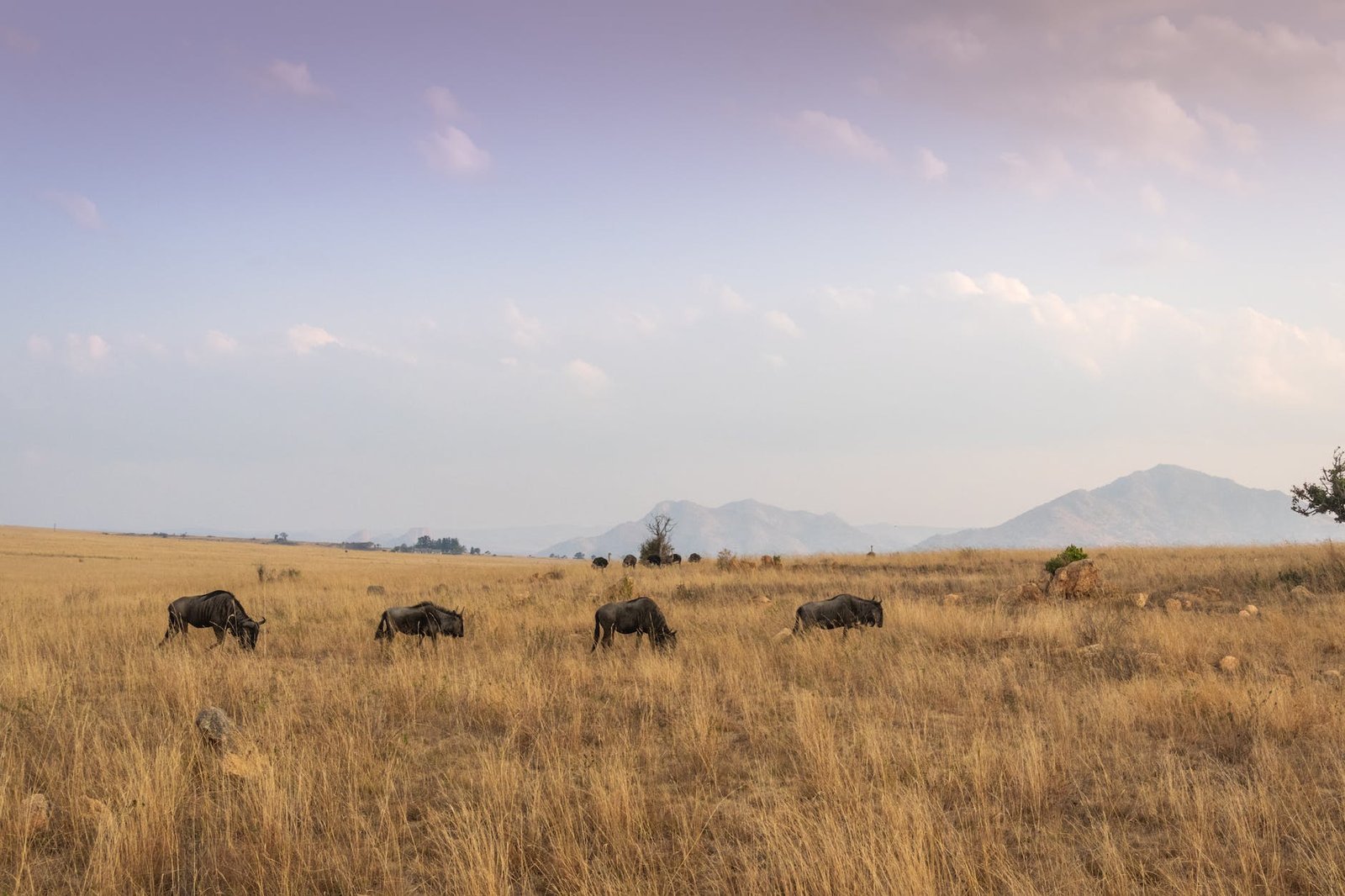
Alpacas are not limited to consuming dry grass. I’ve unearthed evidence that their diet is more diverse than this single food source. It’s crucial to understand the various nutritional needs these creatures have to keep them healthy and productive.
To start, alpacas also eat hay. It might seem like a minor distinction – hay vs. grass – but the differences are key. While both grass and hay are fiber sources, they offer different benefits. Hay, particularly alfalfa hay, is higher in protein than grass, providing alpacas with necessary muscle-building nutrients.
Additionally, they crave diversity in their diet, which can be achieved by grazing in areas filled with a variety of plants. Some types of shrubs and herbs are favorites among alpacas due to their taste and nutritional value.
| Food Source | Benefit for Alpacas |
|---|---|
| Dry Pasture Grass | High in Fiber |
| Alfalfa Hay | High in Protein, high in Fiber |
| Shrubs and Herbs | Taste variety, various nutrients |
They also have a liking for fruit, particularly apples and pears. These fruits provide essential vitamins and add to the diversity of their diet. Who can blame them?
Alpacas also require vitamin and mineral supplementation to their diet. They could have calcium or phosphorus deficiencies if they only eat dry grass. A balanced alpaca diet is usually supplemented with a specially formulated alpaca-pellet feed. It’s fortified with the necessary vitamins and minerals they may lack from forage alone.
To paint a fuller picture, let’s also consider water. Strictly speaking, water is not ‘food,’ but it’s an irreplaceable part of the diet of any mammal, alpacas included. They need fresh, clean water daily to aid digestion and keep them hydrated. It’s not just about what they’re eating; it’s about what they’re drinking too. Life’s about balance, after all, and an alpaca’s diet is no different.
The Balanced Alpaca Diet: What’s on the Menu?
When considering what makes up an alpaca’s dinner plate, it’s far more interesting than just dry pasture. While dry pasture grass plays a significant role, it’s not the only thing alpacas eat. They’re much more versatile eaters than you’d think. Variety is key to their dietary health.
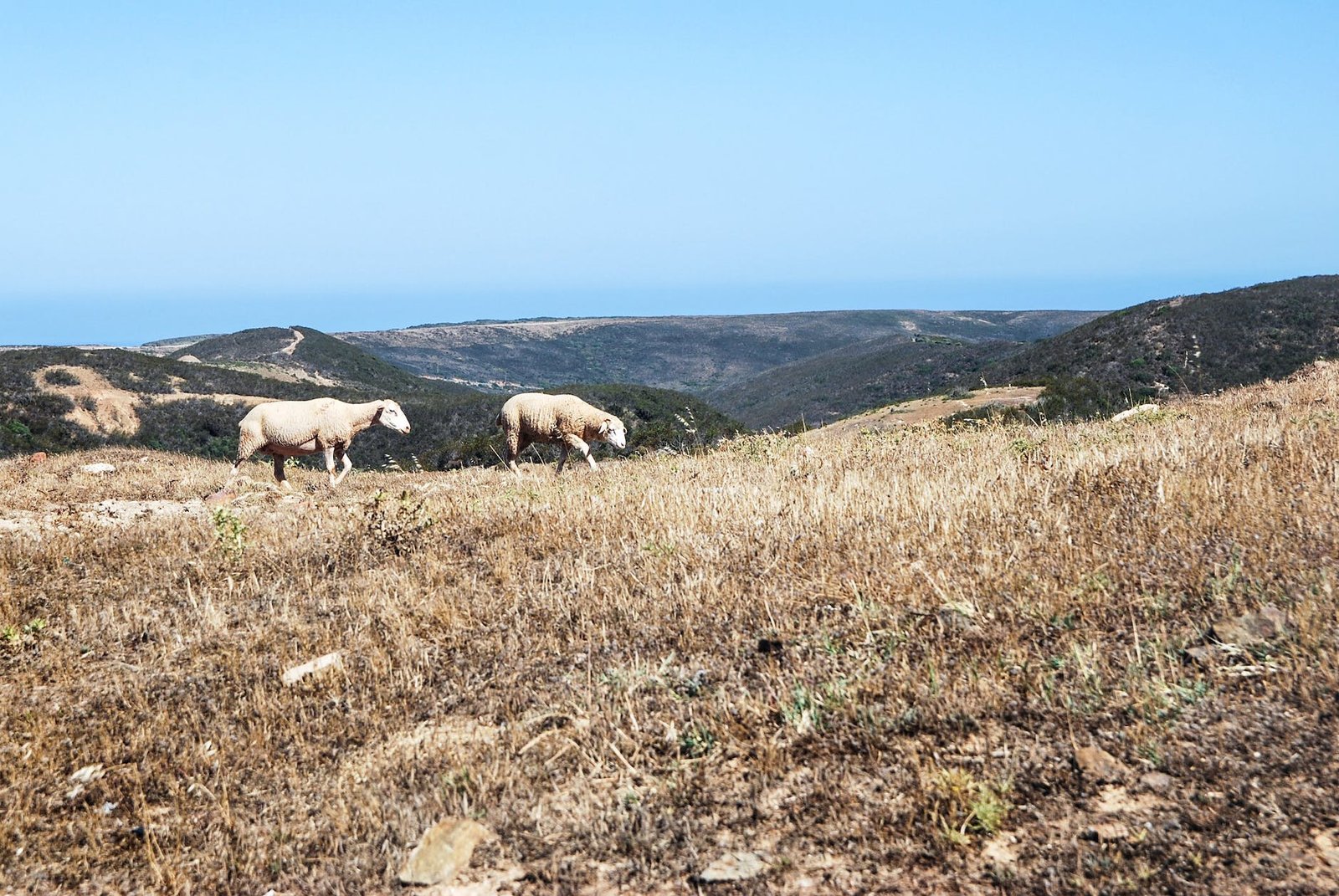
Alpacas enjoy a wide range of foods: hay, shrubs, and various types of herbs are just the start. They find many of these foods in their natural habitats, grazing and browsing throughout the day. Given its quality nutrition and easy availability, hay is a cornerstone of their meal plan.
In addition to these primary food sources, alpacas are also fond of fruits. Specifically, apples and pears are among their favorites. Alpacas have a sweet tooth and these fruits provide an excellent source of vital nutrients.
Having discussed the food sources that alpacas love to munch on, let’s not forget about the crucial role of vitamins and minerals. These components, often overlooked, are essential for optimal health and development. Thus, they should be supplemented as needed. Proper supplementation ensures that alpacas receive all the nutritional elements they require.
Lastly, though no less important, is hydration. Fresh water supply is a must. Dehydration can lead to severe health issues, so keep your furry friend properly hydrated, is of paramount importance.
| Alpaca Diet Essentials | Examples |
|---|---|
| Main Food Items | Hay, dry grass, shrubs, herbs |
| Fruit additions | Apples, Pears |
| Important Nutrients | Vitamins, Minerals |
| Hydration | Fresh Water |
There’s no ‘one size fits all’ approach here. An alpaca’s diet should be balanced and varied, carefully tailored to individual needs and health status. These fascinating animals truly thrive when we fully grasp and cater to their dietary needs.
Exploring the Nutritional Needs of Alpacas
Let’s dig deeper into alpaca’s diet. Alpacas don’t merely survive on dry pasture grass. Of course, they love it, but that’s not all they need to keep fit and healthy. Diversity is key in their diet, with ingredients ranging from hay and shrubs to herbs, fruits, and even mineral supplements.
Here’s a surprising fact for you – alpacas are also fans of fruits! But moderation is the magic word. Alpacas relish fruits like apples and pears, but it’s important to remember that these should only supplement their diet in small amounts. Why so? Well, because fruits contain sugar and too much sugar isn’t good for our furry friends.
Moving on, hay plays a big role in an alpaca’s diet, particularly during the winter months when fresh pasture isn’t readily available. Good quality hay is a must-have in their diet. To balance it out, shrubs and herbs also find their way into the feeding schedule, providing these animals with much-needed fiber and other nutrients.
Above all, the need for vitamin and mineral supplementation cannot be emphasized enough. Your alpaca’s diet needs these essential elements. There are plenty of commercial mineral mixes available in the market designed specifically for alpacas. Selecting one that meets their needs is vital.
Table showing importance of dietary components:
| Dietary Component | Importance |
|---|---|
| Hay | Especially important in winter, provides essential nutrients |
| Fruits | Small amounts offer variety, but too much sugar |
| Shrubs/Herbs | Provides fiber and other nutrients |
| Mineral Supplements | Essential for proper development and maintenance |
Last but certainly not the least, fresh water is fundamental in an alpaca’s diet. A constant supply of fresh, clean water is necessary for the health of these animals. As you can tell, caring for alpacas goes beyond merely feeding them dry pasture grass. It’s all about balance and variety tailored to the individual needs of the alpaca. With that, you’ll be well on your way to guaranteeing the optimal health and development of your herd. Stay tuned as we discuss more on alpaca care in upcoming sections.
Beyond Dry Pasture Grass: The Variety in Alpaca Diets
Look beyond stereotypical images of an alpaca grazing in a dry pasture. These animals appreciate a buffet of dining choices. From munching on extra nutrients in hay to sampling herbs and shrubs, alpacas aren’t just about the grass. They’ll devour luscious fruits like apples or pears, but only as a tiny dessert since too much sugar’s not good for them.
Winter calls for a special mention. It’s when Mother Nature takes a break, and green pastures get hard to find. That’s when hay steps in as the go-to grazing substitute. Remember, it’s got to be good quality hay. Good quality hay acts as a source of vital nutrients to keep alpacas bright-eyed and bushy-tailed.
This doesn’t mean we’re off the hook for nutrition just yet. Even with a diverse diet, alpacas need vitamin and mineral supplementation. So it’s not all do-it-yourself for them. Commercial mineral mixes made especially for alpacas take care of this need. They’re not hard to find, they’re effective, and they’re a surefire way to fill any gaps in their diet.
Water is the silent hero in any alpaca diet. It may not be as colorful as a ripe juicy apple or as fascinating as a supplement mixture, but it’s an essential component. It’s how alpacas stay healthy and hydrated. Plus, cleanliness is crucial – alpacas appreciate fresh, clean water.
The more you learn about alpacas, the more you’ll realize they’re not simple grazers. Just like us, the quality and variety of what they eat matter. Each bite contributes to their health and development. That’s why adaptation is key when it comes to their feeding patterns. Whether it’s sugary fruits, nutrient-rich hay, necessary supplements, or simple water, the alpaca diet goes far beyond dry pasture grass.
Alpacas and Digestive Health: How Grass Factors In
As we dive deeper into alpaca dietary habits, it’s essential for us to touch base on a vital aspect – the relationship between alpacas and their digestive health. Now, you might be wondering, how does grass factor into this? Well, the truth is it plays a crucial role.
Let’s start by understanding that alpacas have a delicate and unique digestive system. Their stomachs are divided into three compartments, naturally designed to extract as much nutrition from plant materials as possible. This means their entire system is optimized for breaking down things like grass and hay, even their mechanisms for chewing and saliva production.
As we already know, alpacas don’t exclusively eat dry pasture grass. They munch on a variety of foods, like hay, shrubs, herbs, and even the occasional apple or pear. Each of these elements brings something different to the nutritional table but it’s grass that forms the bedrock of their diet.
| Food Type | Nutritional Benefit |
|---|---|
| Dry Pasture Grass | Fibers and basic nutrients |
| Hay | Fibers, vitamin A & D, protein |
| Shrubs | Fiber, vitamins |
| Herbs | Different vitamins |
| Apples/Pears | Sugars, vitamins |
The nutritious value of grass lies in its abundant fibers and basic nutrients. These nutrients help in maintaining a healthy digestive system for alpacas. For these creatures, grass isn’t just food, it’s a dietary staple that bolsters their digestive health and overall well-being.
Also, it’s worth mentioning that during winter months, hay becomes particularly valuable as it supplements the scarcity of fresh pasture. This illustrates the adaptability of alpacas to their environment and diet. Besides, they need vitamin and mineral supplementation which is available through commercial mineral mixes specially formulated for alpacas.
Constant access to clean fresh water is as essential for them as it is for any living being. Water aids digestion and helps in maintaining overall body function. So, in essence, what purports to be a simple dietary regime of alpacas is nuanced with many components playing their part towards maintaining good health.

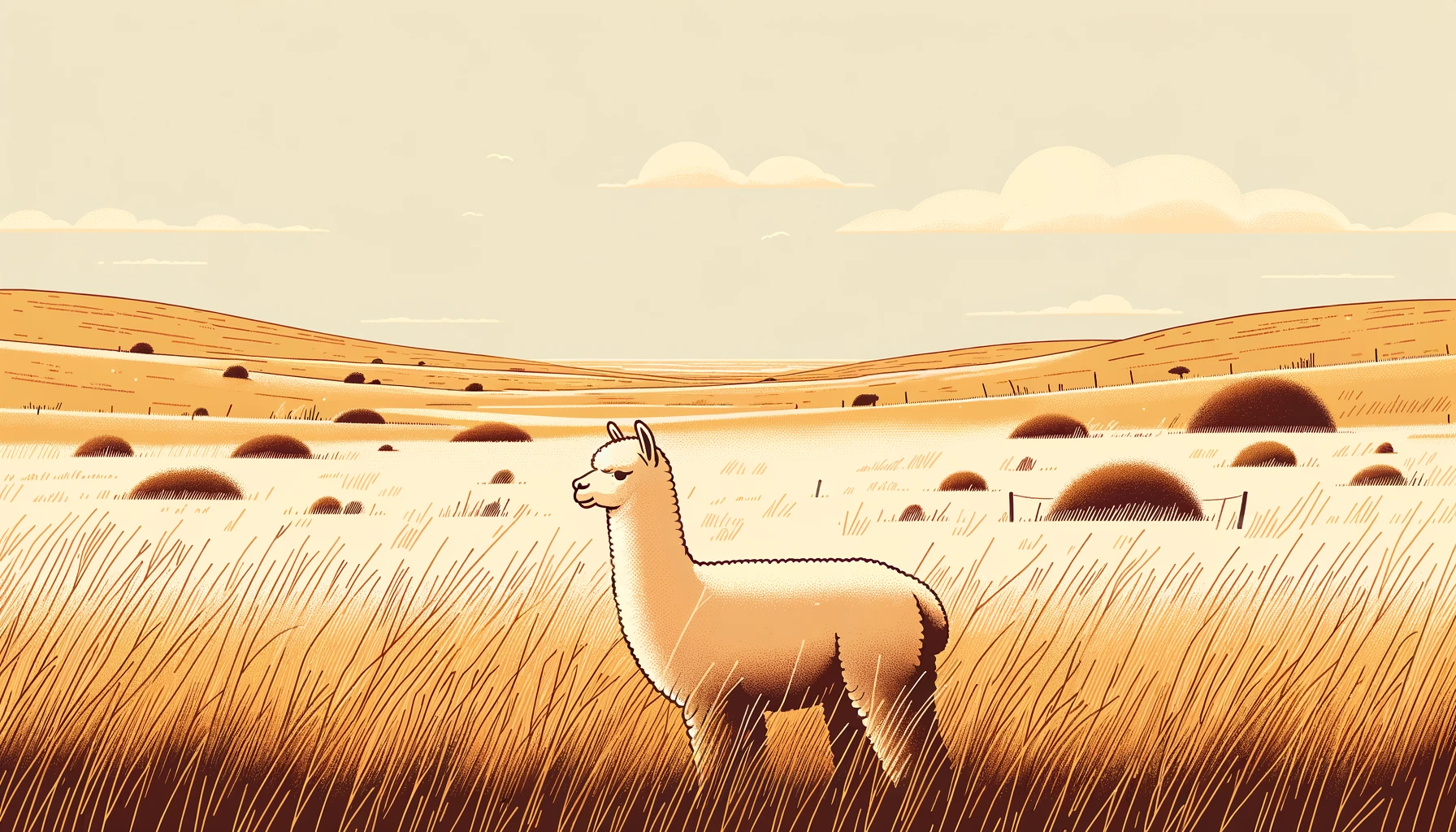

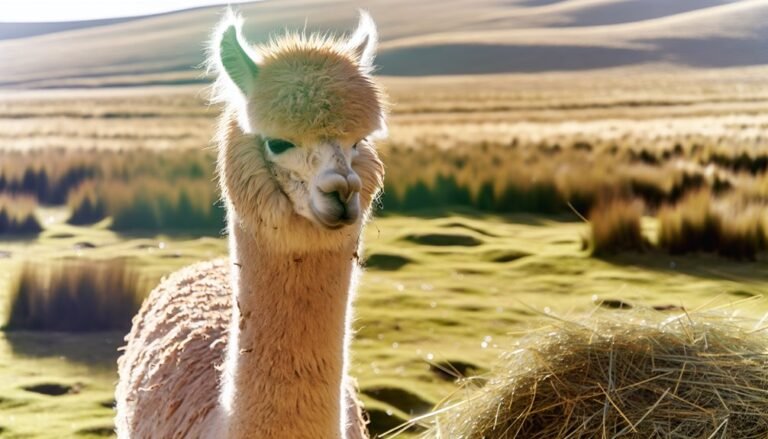

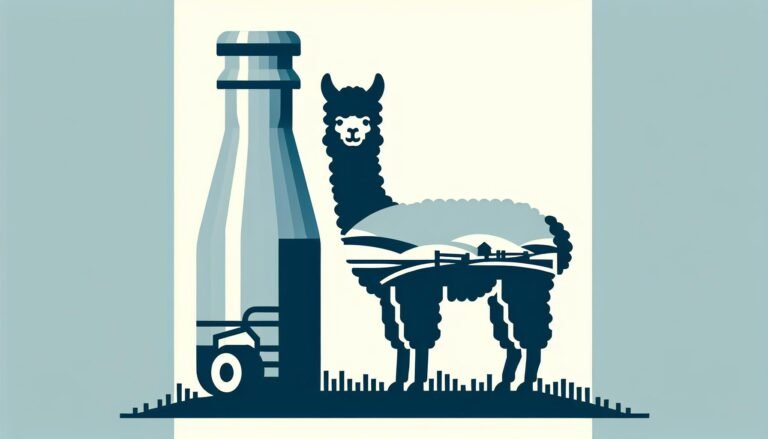


Our picks
Alpaca & Wool Felted Sole Inserts: Comfy Upgrade?
Best Alpaca Socks for Hiking: Ultimate Comfort and Durability on Trails
Best Alpaca Halter for Comfort and Control